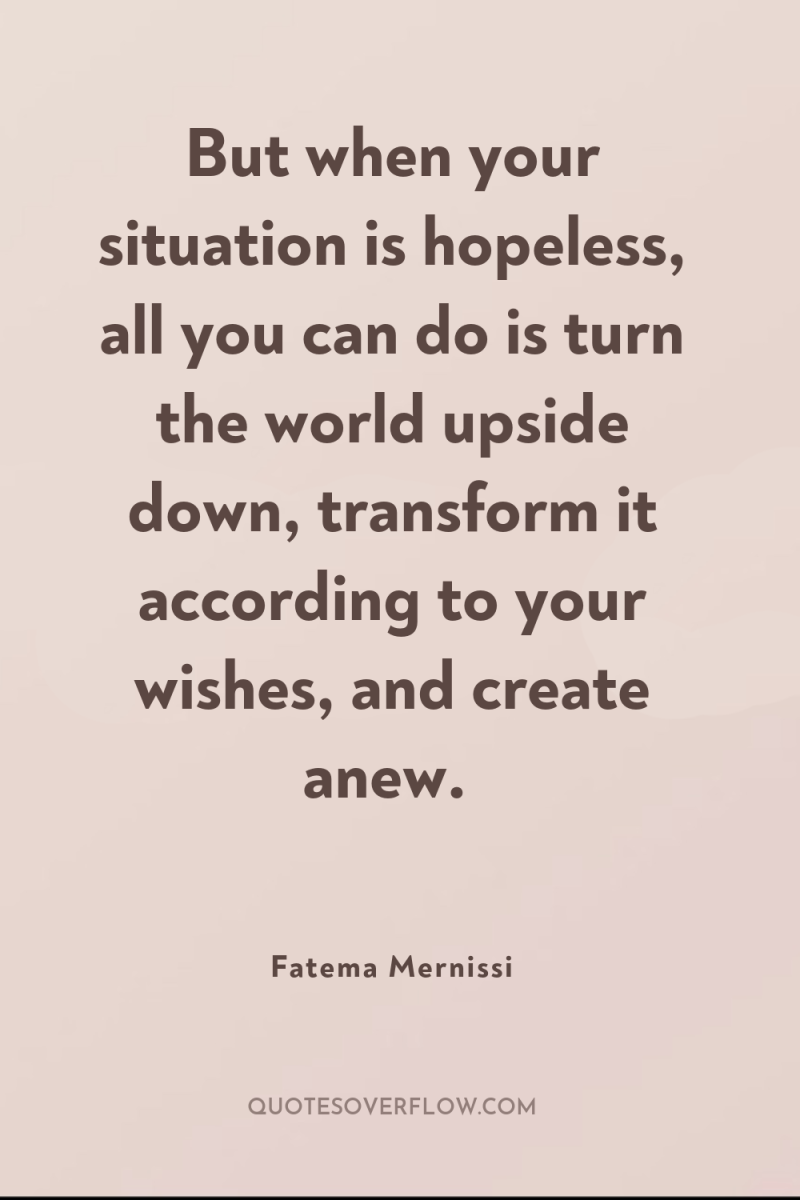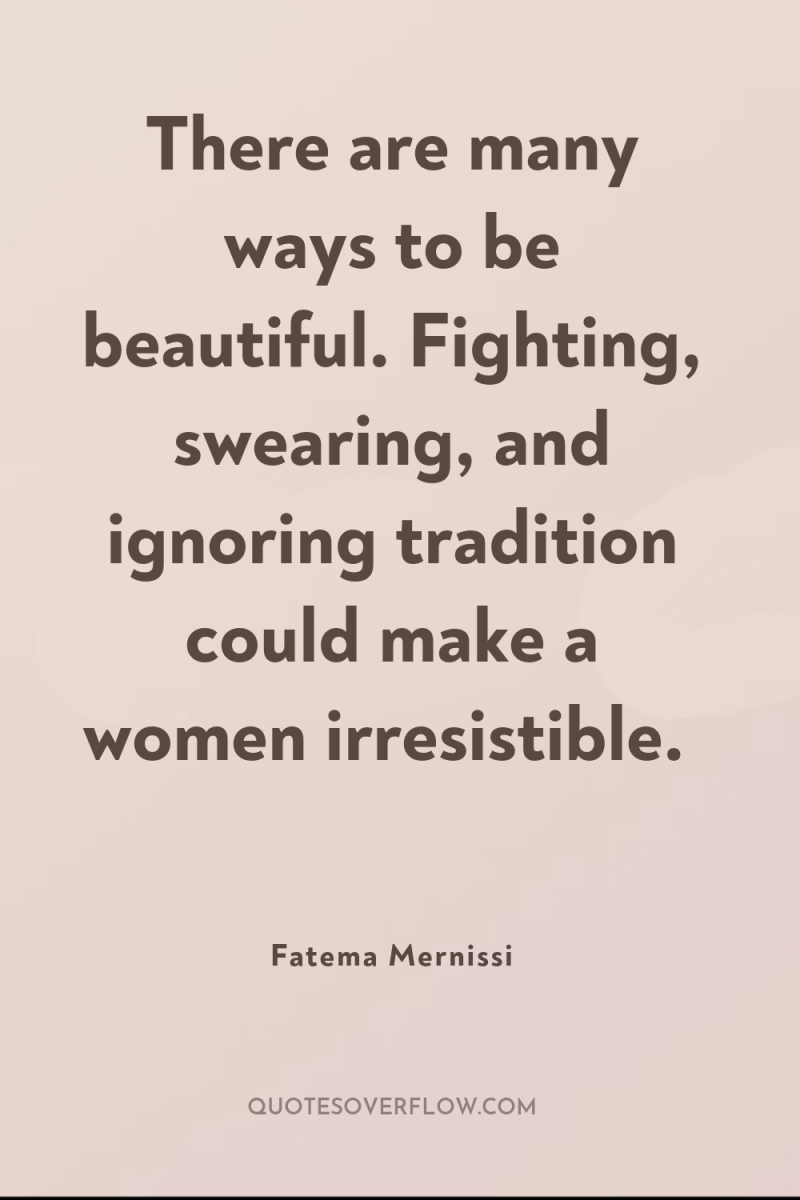
But when your situation is hopeless, all you can do is turn the world upside down, transform it according to your wishes, and create anew.Fatema Mernissi
Nature is woman's best friend, ' she [Yasmina] often said. 'If you're having troubles, you just swim in the water, stretch out in a field, or look up at the stars. That's how a woman cures her fears'.Fatema Mernissi

There are many ways to be beautiful. Fighting, swearing, and ignoring tradition could make a women irresistible.Fatema Mernissi
When you are in trouble, you need to put all your energies into thinking that there is a way out. Then, the bottom, the dark hole, becomes just a springboard from which you can leap so high that your head might hit a cloud.Fatema Mernissi
A human being was connected to the world through his or her skin and how could someone with clogged pores feel the environment or be sensitive to its vibrations?Fatema Mernissi
Happiness, she would explain, was when a person felt good, light, creative, content, loving and loved, and free. An unhappy person felt as if there were barriers crushing her desires and the talents she had inside. A happy woman was one who could exercise all kinds of rights, from the right to move to the right to create, compete, and challenge, and at the same time could be loved for doing so. Part of happiness was to be loved by a man who enjoyed your strength and was proud of your talents. Happiness was also about the right to privacy, the right to retreat from the company of others and plunge into contemplative solitude. Or sit by yourself doing nothing for a whole day, and not give excuses or feel guilty about it either. Happiness was to be with loved ones, and yet still feel that you existed as a separate being, that ou were not just there to make them happy. Happiness was when there was a balance between what you gave and what you took.Fatema Mernissi
But Aunt Habiba said not to worry, that everyone had wonderful things hidden inside. The only difference was that some managed to share those wonderful things, and others did not. Those who did not explore and share the precious gifts within went through life feeling miserable, sad, awkward with others, and angry too. You had to develop a talent, Aunt Habiba said, so that you could give something, share and shine. And you developed a talent by working very hard at becoming good at something. It could be anything - singing, dancing, cooking, embroidering, listening, looking, smiling, waiting, accepting, dreaming, rebelling, leaping. 'Anything you can do well can change your life', said Aunt Habiba. .Fatema Mernissi
Dignity is to have a dream, a strong one, which gives you a vision, a world where you have a place, where whatever it is you have to contribute makes a difference.Fatema Mernissi
Educated women armed with computers have defeated extremists by denying them a monopoly to define cultural identity and interpret religious texts. No extremist can say that women are inferior to men without being made a laughingstock on Al Jazeera. Islam insisted on equality between everyone.Fatema Mernissi
In Islamic societies, politicians can manipulate almost everything. But thus far, no fundamentalist leader has been able to convince his supporters to renounce Islam's central virtue - the principle of strict equality between human beings, regardless of sex, race, or creed.Fatema Mernissi
The waves of religion based on terrorism in the 1990s are based on the tormented response of a mutilated Muslim society whose progressive forces have been savagely emasculated. Why on earth is the Arab world so hostile to women? Why can it not see women as a force for development?Fatema Mernissi
The woman with dark hair, wide hips, and a few extra pounds has always been the essence of beauty in Morocco.Fatema Mernissi